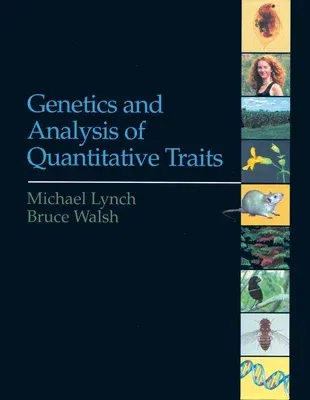With the emerging recognition that the expression of most characters is
influenced by multiple genes and multiple environmental factors,
quantitative genetics has become the central paradigm for the analysis
of phenotypic variation and evolution.
Genetics and Analysis of Quantitative Traits brings together the
diverse array of theoretical and empirical applications of quantitative
genetics under one cover, in a way that is both comprehensive and
accessible to anyone with a rudimentary understanding of statistics and
genetics. What was originally envisioned as a single text has now become
two, with the focus of this first book being on the basic biology and
methods of analysis of quantitative characters.
Three major features of Genetics and Analysis of Quantitative Traits
distinguish it from earlier work. First, it reflects the explosive
influx over the past few years of quantitative-genetic thinking into
evolutionary biology. Second, in animal breeding, enormous strides have
been made in the development of new techniques for estimating breeding
values (for the purposes of identifying elite individuals in selection
programs) and for estimating variance components from samples of complex
pedigrees. In this text's last two chapters, the authors outline the
basic principles of complex pedigree analysis, without getting bogged
down in technical details. Third, Genetics and Analysis of Quantitative
Traits provides a broad overview of the newly emerging array of
techniques for quantitative-trait loci (QTL) analysis, currently one of
the most active fields of quantitative-genetic research.
Genetics and Analysis of Quantitative Traits contains numerous
fully-worked examples and illustrations of theoretical concepts, as well
as over 2,000 references with indices by subject, author, and organism.
In addition, the authors maintain a World Wide Web site featuring
up-to-date lists of computer programs and on-line resources, and added
information on various topics presented in the text.

